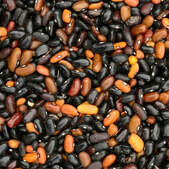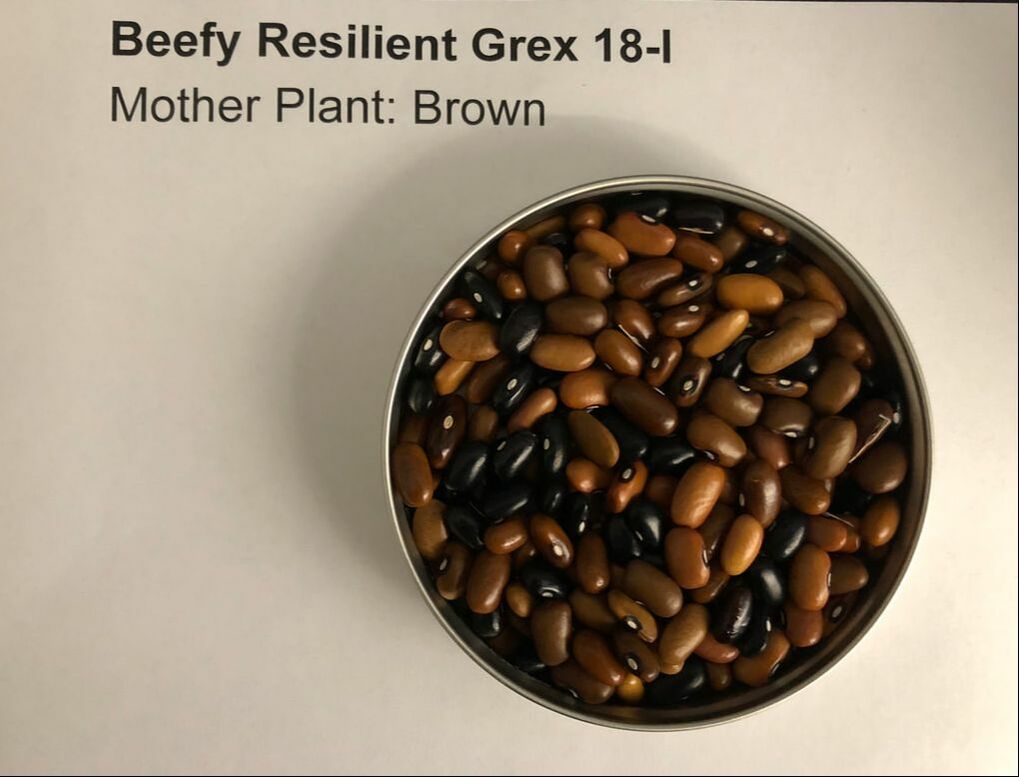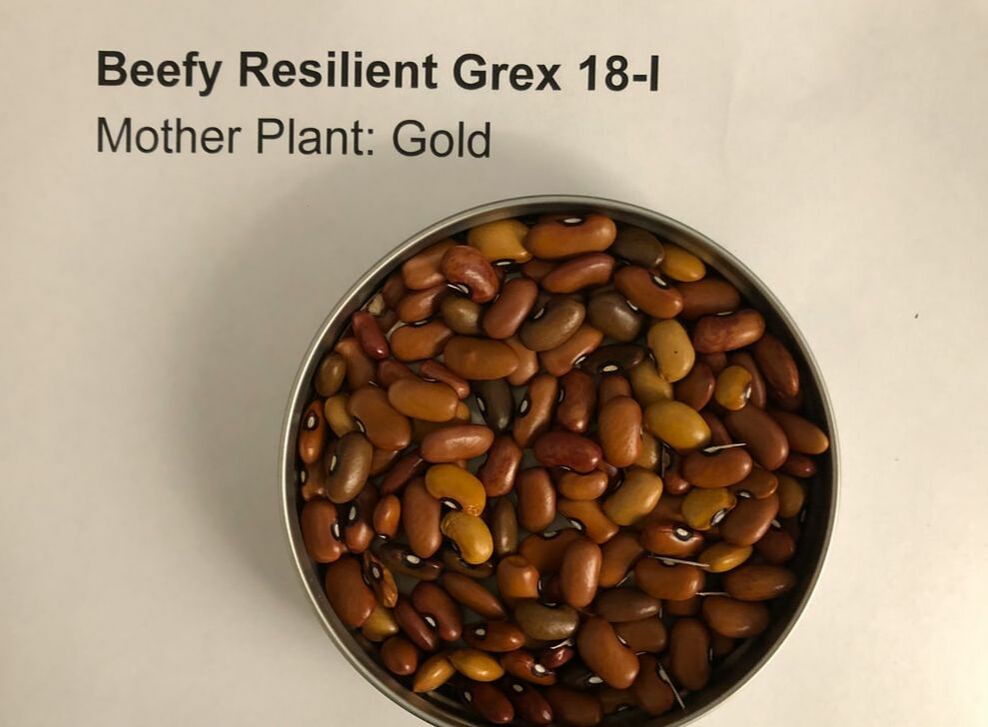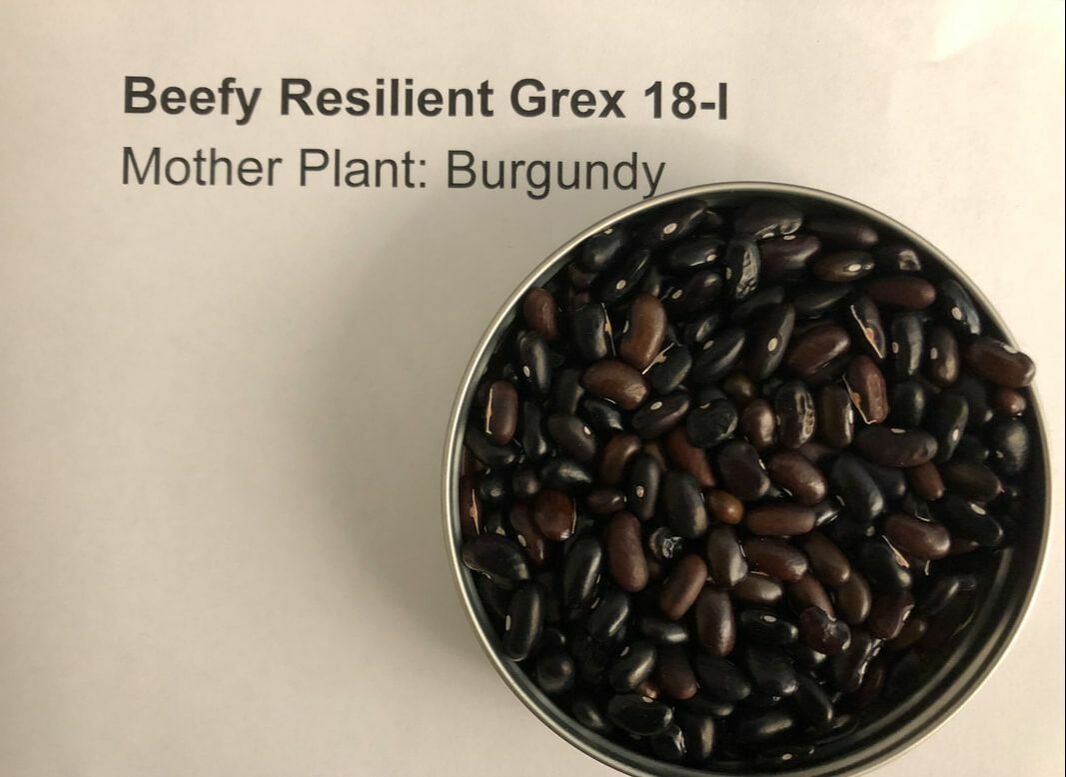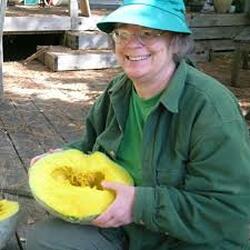Plant Breeding Project
Beefy Resilient Grex Bean
Task
Stabilize plant breeder Carol Deppe's Beefy Resilient Grex dry bush bean.
Selection: Breeding for maximum diversity.
Option: Breed for a color and/or trait (bush, half runner)
Stabilize plant breeder Carol Deppe's Beefy Resilient Grex dry bush bean.
Selection: Breeding for maximum diversity.
Option: Breed for a color and/or trait (bush, half runner)
|
|

